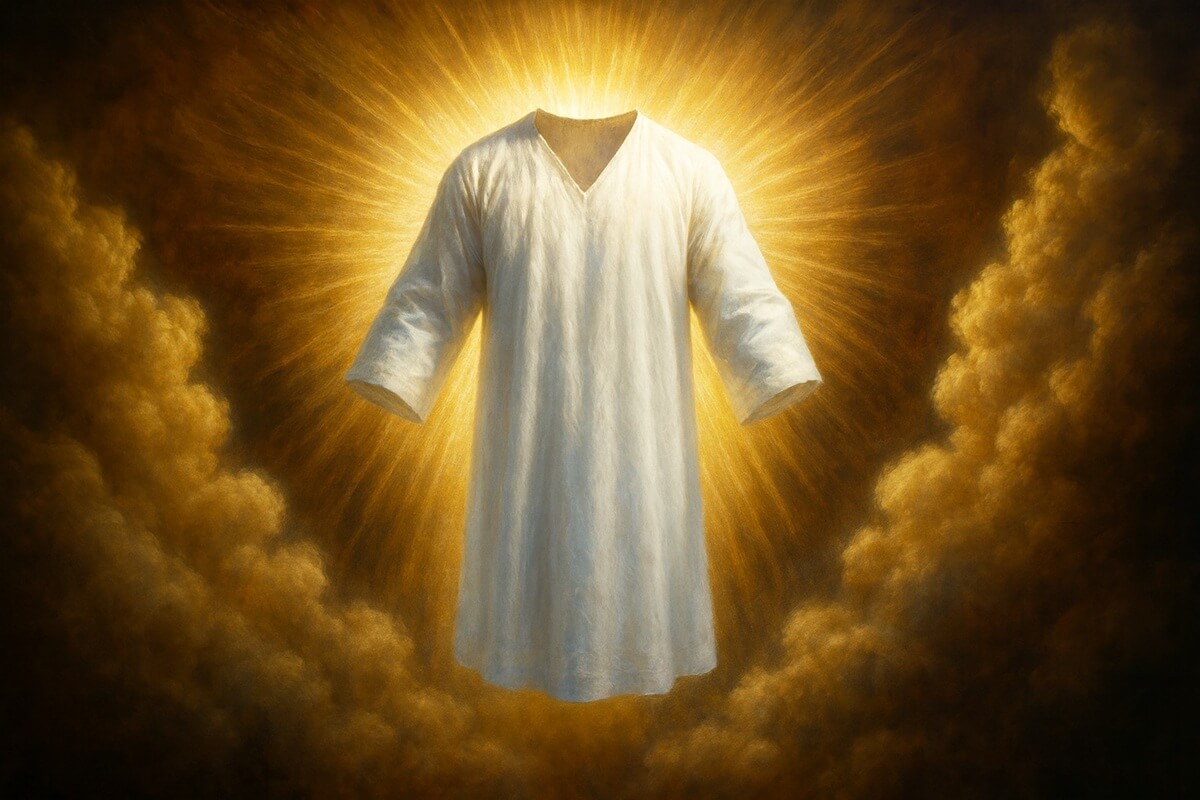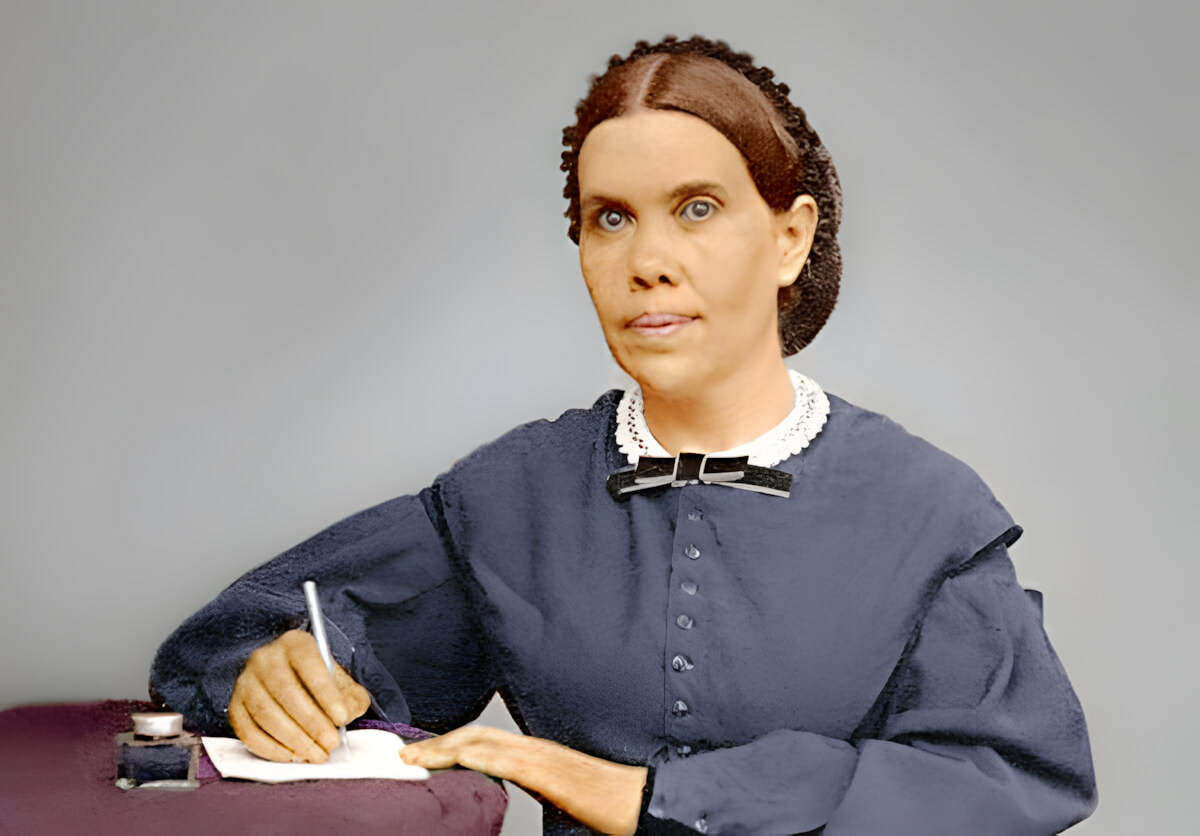Щоденні біблійні уроки

Євангелія від Івана частина 4 (англ.)
Lesson 8. Jesus Appears to the Disciples
Змінити розмір шрифту:
MEMORY VERSE: “Then were the disciples glad, when they saw the Lord” (John 20:20, last part).
Suggested Readings: The Desire of Ages, pp. 788–806; Christ’s Object Lessons, pp. 40–43.
“Christ’s first work on earth after His resurrection was to convince His disciples of His undiminished love and tender regard for them.”—The Desire of Ages, p. 793.
1. MIRACLE AT THE TOMB Sun, Nov 16
a. As Mary of Magdala was weeping, she stopped and looked into the sepulchre. What did she see there?
John 20:11–13: 11 But Mary stood weeping outside the tomb, and as she wept she stooped to look into the tomb. 12 And she saw two angels in white, sitting where the body of Jesus had lain, one at the head and one at the feet. 13 They said to her, “Woman, why are you weeping? ” She said to them, “They have taken away my Lord, and I do not know where they have laid him. ”
b. To whom and how did Jesus first reveal Himself?
John 20:14–18: 14 Having said this, she turned around and saw Jesus standing, but she did not know that it was Jesus. 15 Jesus said to her, “Woman, why are you weeping? Whom are you seeking? ”Supposing him to be the gardener, she said to him, “Sir, if you have carried him away, tell me where you have laid him, and I will take him away. ” 16 Jesus said to her, “Mary. ”She turned and said to him in Aramaic, “Rabboni! ” (which means Teacher). 17 Jesus said to her, “Do not cling to me, for I have not yet ascended to the Father; but go to my brothers and say to them, ‘I am ascending to my Father and your Father, to my God and your God. ’” 18 Mary Magdalene went and announced to the disciples, “I have seen the Lord”—and that he had said these things to her.
“Through her tear-dimmed eyes, Mary saw the form of a man, and thinking that it was the gardener, she said, ‘Sir, if thou have borne Him hence, tell me where thou hast laid Him, and I will take Him away.’ If this rich man’s tomb was thought too honorable a burial place for Jesus, she herself would provide a place for Him. There was a grave that Christ’s own voice had made vacant, the grave where Lazarus had lain. Might she not there find a burial place for her Lord? She felt that to care for His precious crucified body would be a great consolation to her in her grief.
“But now in His own familiar voice Jesus said to her, ‘Mary.’ Now she knew that it was not a stranger who was addressing her, and turning she saw before her the living Christ.”—The Desire of Ages, p. 790.
“Mary was first at the tomb after His resurrection. It was Mary who first proclaimed a risen Saviour.”—Ibid., p. 568.
2. ON THE WAY TO EMMAUS Mon, Nov 17
a. What happened while two of Christ’s disciples were on the way to the village of Emmaus?
Luke 24:13–16: 13 That very day two of them were going to a village named Emmaus, about seven miles from Jerusalem, 14 and they were talking with each other about all these things that had happened. 15 While they were talking and discussing together, Jesus himself drew near and went with them. 16 But their eyes were kept from recognizing him.
“[Two of the disciples] were now returning to their homes to meditate and pray. Sadly they pursued their evening walk, talking over the scenes of the trial and the crucifixion. Never before had they been so utterly disheartened. Hopeless and faithless, they were walking in the shadow of the cross.
“They had not advanced far on their journey when they were joined by a stranger, but they were so absorbed in their gloom and disappointment that they did not observe him closely.”—The Desire of Ages, p. 795.
b. Relate the conversation which ensued.
Luke 24:17–24: 17 And he said to them, “What is this conversation that you are holding with each other as you walk? ”And they stood still, looking sad. 18 Then one of them, named Cleopas, answered him, “Are you the only visitor to Jerusalem who does not know the things that have happened there in these days? ” 19 And he said to them, “What things? ”And they said to him, “Concerning Jesus of Nazareth, a man who was a prophet mighty in deed and word before God and all the people, 20 and how our chief priests and rulers delivered him up to be condemned to death, and crucified him. 21 But we had hoped that he was the one to redeem Israel. Yes, and besides all this, it is now the third day since these things happened. 22 Moreover, some women of our company amazed us. They were at the tomb early in the morning, 23 and when they did not find his body, they came back saying that they had even seen a vision of angels, who said that he was alive. 24 Some of those who were with us went to the tomb and found it just as the women had said, but him they did not see. ”
“[The two disciples] were reasoning in regard to the lessons that Christ had given, which they seemed unable to comprehend. As they talked of the events that had taken place, Jesus longed to comfort them. He had seen their grief; He understood the conflicting, perplexing ideas that brought to their minds the thought, Can this Man, who suffered Himself to be so humiliated, be the Christ? Their grief could not be restrained, and they wept. Jesus knew that their hearts were bound up with Him in love, and He longed to wipe away their tears, and fill them with joy and gladness. But He must first give them lessons they would never forget.”—Ibid., pp. 795, 796.
c. How did Jesus gently explain to them the prophecies?
Luke 24:25–27: 25 And he said to them, “O foolish ones, and slow of heart to believe all that the prophets have spoken! 26 Was it not necessary that the Christ should suffer these things and enter into his glory? ” 27 And beginning with Moses and all the Prophets, he interpreted to them in all the Scriptures the things concerning himself.
“Had [Christ] first made Himself known to them, their hearts would have been satisfied. In the fullness of their joy they would have hungered for nothing more. But it was necessary for them to understand the witness borne to Him by the types and prophecies of the Old Testament. Upon these their faith must be established. Christ performed no miracle to convince them, but it was His first work to explain the Scriptures. They had looked upon His death as the destruction of all their hopes. Now He showed from the prophets that this was the very strongest evidence for their faith.”—The Desire of Ages, pp. 796–799.
3. HEARTS BURNING Tue, Nov 18
a. When Jesus seemed as though He would continue His journey past Emmaus, what proposal did the two disciples make?
Luke 24:28, 29: 28 So they drew near to the village to which they were going. He acted as if he were going farther, 29 but they urged him strongly, saying, “Stay with us, for it is toward evening and the day is now far spent. ” So he went in to stay with them.
“Had the disciples failed to press their invitation, they would not have known that their traveling companion was the risen Lord. Christ never forces His company upon anyone. He interests Himself in those who need Him. Gladly will He enter the humblest home, and cheer the lowliest heart. But if men are too indifferent to think of the heavenly Guest, or ask Him to abide with them, He passes on. Thus many meet with great loss. They do not know Christ any more than did the disciples as He walked with them by the way.”—The Desire of Ages, p. 800.
b. How and when were the two disciples finally able to recognize the risen Saviour—and how are we to have a similar joy?
Luke 24:30–32: 30 When he was at table with them, he took the bread and blessed and broke it and gave it to them. 31 And their eyes were opened, and they recognized him. And he vanished from their sight. 32 They said to each other, “Did not our hearts burn within us while he talked to us on the road, while he opened to us the Scriptures? ”
“The simple evening meal of bread is soon prepared. It is placed before the guest, who has taken His seat at the head of the table. Now He puts forth His hands to bless the food. The disciples start back in astonishment. Their companion spreads forth His hands in exactly the same way as their Master used to do. They look again, and lo, they see in His hands the print of nails. Both exclaim at once, It is the Lord Jesus! He has risen from the dead!
“They rise to cast themselves at His feet and worship Him, but He has vanished out of their sight. They look at the place which had been occupied by One whose body had lately lain in the grave, and say to each other, ‘Did not our heart burn within us, while He talked with us by the way, and while He opened to us the Scriptures?’ ”—Ibid., pp. 800, 801.
“There are many who are crying out for the living God, longing for the divine presence. Let the word of God speak to the heart. Let those who have heard only tradition and human theories and maxims, hear the voice of Him who can renew the soul unto eternal life. . . .
“If the saints of the Old Testament bore so bright a testimony of loyalty, should not those upon whom is shining the accumulated light of centuries, bear a still more signal witness to the power of truth?”—Prophets and Kings, p. 626.
4. ZEAL TO SHARE THE MESSAGE Wed, Nov 19
a. As soon as the two disciples at Emmaus recognized Jesus, what did they immediately do?
Luke 24:33–35: 33 And they rose that same hour and returned to Jerusalem. And they found the eleven and those who were with them gathered together, 34 saying, “The Lord has risen indeed, and has appeared to Simon! ” 35 Then they told what had happened on the road, and how he was known to them in the breaking of the bread.
“With this great news to communicate they cannot sit and talk. Their weariness and hunger are gone. They leave their meal untasted, and full of joy immediately set out again on the same path by which they came, hurrying to tell the tidings to the disciples in the city. In some parts the road is not safe, but they climb over the steep places, slipping on the smooth rocks. They do not see, they do not know, that they have the protection of Him who has traveled the road with them. With their pilgrim staff in hand, they press on, desiring to go faster than they dare. They lose their track, but find it again. Sometimes running, sometimes stumbling, they press forward, their unseen Companion close beside them all the way.
“The night is dark, but the Sun of Righteousness is shining upon them. Their hearts leap for joy. They seem to be in a new world. Christ is a living Saviour. They no longer mourn over Him as dead. Christ is risen—over and over again they repeat it. This is the message they are carrying to the sorrowing ones. They must tell them the wonderful story of the walk to Emmaus. They must tell who joined them by the way. They carry the greatest message ever given to the world, a message of glad tidings upon which the hopes of the human family for time and for eternity depend.”—The Desire of Ages, p. 801.
b. While most of Christ’s disciples were in the upper room in Jerusalem, what unexpectedly happened?
Luke 24:36–40: 36 As they were talking about these things, Jesus himself stood among them, and said to them, “Peace to you! ” 37 But they were startled and frightened and thought they saw a spirit. 38 And he said to them, “Why are you troubled, and why do doubts arise in your hearts? 39 See my hands and my feet, that it is I myself. Touch me, and see. For a spirit does not have flesh and bones as you see that I have. ” 40 And when he had said this, he showed them his hands and his feet.
John 20:19–21: 19 On the evening of that day, the first day of the week, the doors being locked where the disciples were for fear of the Jews, Jesus came and stood among them and said to them, “Peace be with you. ” 20 When he had said this, he showed them his hands and his side. Then the disciples were glad when they saw the Lord. 21 Jesus said to them again, “Peace be with you. As the Father has sent me, even so I am sending you. ”
“[The two disciples] go to the upper chamber where Jesus spent the hours of the last evening before His death. . . . They find the door of the chamber securely barred. They knock for admission, but no answer comes. All is still. Then they give their names. The door is carefully unbarred, they enter, and Another, unseen, enters with them. Then the door is again fastened, to keep out spies. . . .
“Behold, another Person stands before them. Every eye is fastened upon the Stranger. No one has knocked for entrance. No footstep has been heard. The disciples are startled, and wonder what it means. Then they hear a voice which is no other than the voice of their Master. Clear and distinct the words fall from His lips, ‘Peace be unto you.’ ”—Ibid., pp. 802, 803.
5. ENTRUSTED WITH A DUTY Thu, Nov 20
a. What responsibility did Jesus place upon the church as far as dealing with sin and sinners is concerned?
John 20:22, 23: 22 And when he had said this, he breathed on them and said to them, “Receive the Holy Spirit. 23 If you forgive the sins of any, they are forgiven them; if you withhold forgiveness from any, it is withheld. ”
“Before the disciples could fulfill their official duties in connection with the church, Christ breathed His Spirit upon them. He was committing to them a most sacred trust. . . .
“On the church in its organized capacity He places a responsibility for the individual members. Toward those who fall into sin, the church has a duty, to warn, to instruct, and if possible to restore. ‘Reprove, rebuke, exhort,’ the Lord says, ‘with all long-suffering and doctrine.’ 2 Timothy 4:2. Deal faithfully with wrongdoing. Warn every soul that is in danger. Leave none to deceive themselves. Call sin by its right name. Declare what God has said in regard to lying, Sabbathbreaking, stealing, idolatry, and every other evil. ‘They which do such things shall not inherit the kingdom of God.’ Galatians 5:21. If they persist in sin, the judgment you have declared from God’s word is pronounced upon them in heaven. In choosing to sin, they disown Christ; the church must show that she does not sanction their deeds, or she herself dishonors her Lord. She must say about sin what God says about it. She must deal with it as God directs, and her action is ratified in heaven. He who despises the authority of the church despises the authority of Christ Himself.
“But there is a brighter side to the picture. ‘Whosesoever sins ye remit, they are remitted.’ Let this thought be kept uppermost. In labor for the erring, let every eye be directed to Christ. Let the shepherds have a tender care for the flock of the Lord’s pasture. Let them speak to the erring of the forgiving mercy of the Saviour. Let them encourage the sinner to repent, and believe in Him who can pardon.”—The Desire of Ages, pp. 805, 806.
PERSONAL REVIEW QUESTIONS Fri, Nov 21
1. What can I learn from the hour at which Mary sought Jesus?
2. Explain how Jesus taught the two going to Emmaus.
3. What can I learn from the zeal of these two disciples?
4. In setting priorities, how closely am I following their example?
5. How can I better serve in my duties as part of the organized church?




